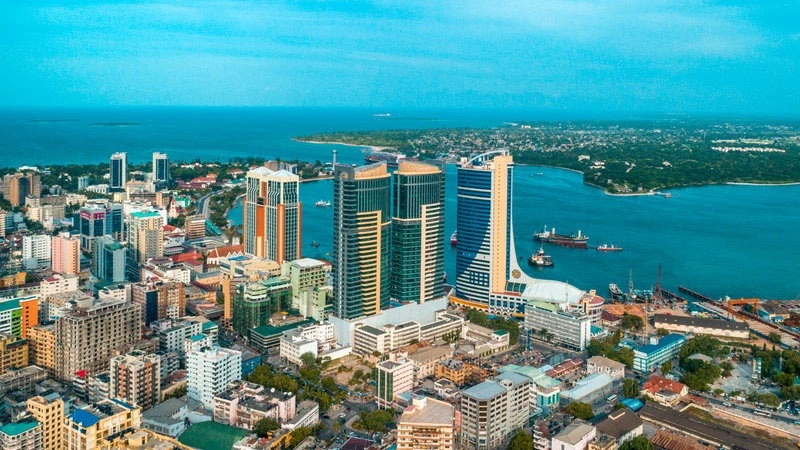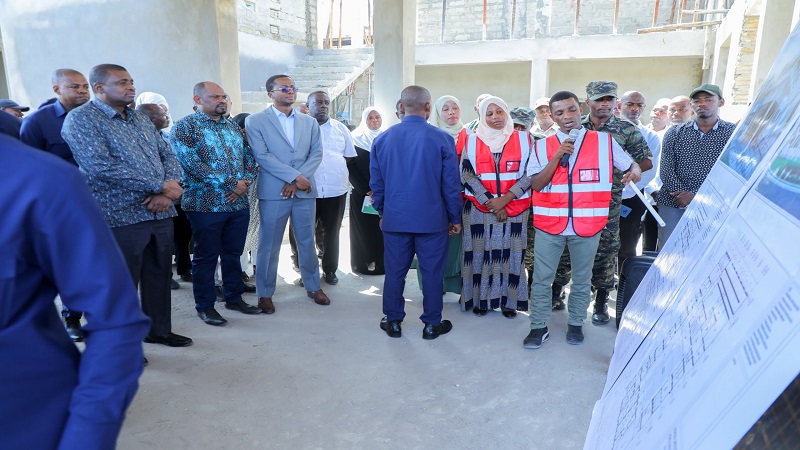Agency forecasts Tanzania’s economic growth at 5.6pc in 2024

FocusEconomics, the Barcelona based macroeconomic intelligence agency has forecasted the Tanzania’s economic growth of 5.6 per cent this year, although extreme weather events disrupting agricultural production pose a downside risk.
In its consensus forecast Sub-Saharan Africa - May 2024, the agency, which provides insights for 198 economies and more than 30 commodities, says Tanzania’s GDP growth is forecast to accelerate slightly this year from last, due to stronger growth in both private and public spending.
“FocusEconomics panelists see GDP expanding 5.6 percent in 2024, which is up by 0.1 percentage points from one month ago, and expanding 5.9 percent in 2025,” said Adria Solanes, the agency’s economist.
The rate is slightly higher than the projected 5.5 percent by the Bank of Tanzania (BoT) as stated in the Monetary Policy Statement, Mid-Year review for February 2024 and lower than 6.1 percent projected by the African Development Bank (AfDB).
Solanes notes that Tanzania’s fixed investment will remain supportive, as IMF-backed reforms enhance investor sentiment; with export growth is forecast to soften.
“Both goods exports and private- sector credit continued to expand at healthy rates in January–February, while inflation remained subdued throughout the quarter,” Solanes said in the report.
In 2024, the report says, inflation is forecast to average around 2023’s level, staying below the Bank of Tanzania’s 5.0 percent target.
Commodity price spikes and a weaker-than-expected shilling are upside risks.
FocusEconomics panelists see consumer prices rising 3.8 percent on average in 2024, which is down by 0.1 percentage points from one month ago, and rising 4.2 percent on average in 2025.
On 3 April, the Bank of Tanzania set its Central Bank Rate (CBR) at 6.00 percent for Q2, up from Q1’s 5.50 percent, pre-emptive hike aimed to shield the economy from inflation arising from import price volatility.
Inflation slightly increased to 3.1 percent in April, from 3 percent in March, as compared to Uganda 3.2 percent and Kenya 5.0 percent, according to the National Bureau of Statistics (NBS) Consumer Price Index for
“The Bank did not provide explicit forward guidance, but our panelists expect additional hikes by year–end. The next rate-setting meeting will be held in early July,” says FocusEconomics.
“Our panelists see the central bank rate ending 2024 at 6.65 percent and ending 2025 at 7.35 percent.”
In its 20th economic update published in March this year, the World Bank also projected similar GDP growth for Tanzania due to resilience.
“While annual GDP growth for 2024 is projected at 5.6 percent and offers hope for Tanzania, several threats cloud the economic outlook. Potential risks include slow or incomplete implementation of structural reforms, the impact of climate change on key sectors like agriculture and tourism, and the possibility of a global recession. These risks need to be carefully managed,” said Emmanuel Mungunasi, World Bank Senior Economist.
Tanzanian authorities and the International Monetary Fund (IMF) reached staff-level agreement on a reform program earlier this month, to address climate change challenges supported by the Resilience and Sustainability Facility (RSF), and the completion of the third review under the Extended Credit Facility (ECF).
The RSF will support the authorities’ efforts to advance structural reforms and investments on adaptation and mitigation to address risks and challenges associated with climate change.
A staff team from the IMF led by Charalambos Tsangarides, IMF mission chief for Tanzania, held meetings in Dodoma and Dar es Salaam from May 2 to 17, for the third review under the Extended Credit Facility (ECF).
Subject to approval by the IMF Executive Board the review will make available SDR113.3 million (about US$150 million), bringing the total IMF financial support under the arrangement to SDR455.5 million (about US$604.2 million).
The team also discussed the authorities’ request to access under the Resilience and Sustainability Facility (RSF) in the amount of 150 percent of quota (SDR 596.7 million, approximately US$789.6 million).
At the conclusion of the mission, Tsangarides said in a statement that the Tanzanian economic outlook is favorable with growth expected to pick up to 5.4 percent in 2024, supported by improvements in the business environment and subsiding global commodity prices.
“Risks to the outlook are tilted to the downside, as intensification of regional conflicts, increased commodity price volatility, abrupt global slowdown, prolonged liquidity issues in the foreign exchange (FX) market, and intensification of floods from El Nino, could weigh negatively on economic outlook,” he said.
The government also committed to increase priority social spending and contain the impact of the recent floods on the most vulnerable.
Top Headlines
© 2025 IPPMEDIA.COM. ALL RIGHTS RESERVED

























